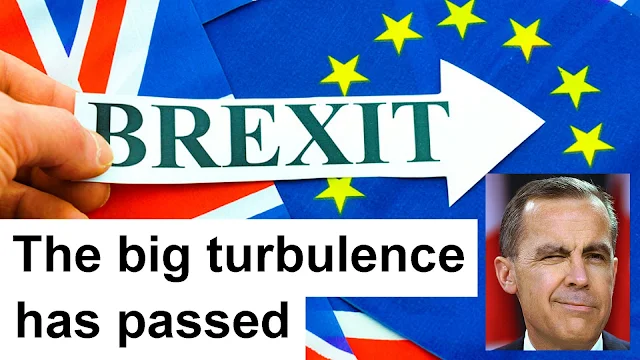Bank of England Governor Mark Carney said Wednesday that the Brexit was no longer the main risk to the financial stability of the United Kingdom, after a passage without too many hiccups in the first months after the decision-shock of Leave the EU.
At a parliamentary hearing, President of the Treasury Commission, Andrew Tyrie, asked Mr. Carney whether, "yes or no", the Brexit remained the main risk to the country's financial stability in the short term. "Strictly speaking, the Financial Policy Committee thinks no," said Mr. Carney, whose hearing focused on the Bank of England's (BoE) latest financial stability report.
"Up until the referendum, we felt that this was the main risk because there was a series of positions and assumptions in the financial sector, things that could have happened and that would have had consequences for financial stability, "said the governor.
A number of analysts feared a storm on the financial markets in case the British decided on 23 June to vote to exit the EU. With this vote, the stock markets have slightly blunted but have quickly moved ahead and the financial turmoil has been limited to the foreign exchange market, with a fall of about 15% of the pound against the dollar and the euro For the full year.
The formal exit negotiations between London and Brussels have not yet begun
"Now that we have gone through the turbulence, the breadth of the immediate risks around the Brexit has declined for the UK," Carney added on financial stability. The Governor did not, however, comment on the economic risks stricto sensu for the United Kingdom, which is a separate issue. On this level too, the country went through the first months of the post-referendum in better posture than feared by the majority of economists.
However, the Brexit process is only at its inception and the formal exit negotiations between London and Brussels have not yet begun, with British Prime Minister Theresa May hoping to kick off before the end of March.
They could last up to two years, but a growing number of British political and economic leaders are demanding that a period of transition between the conclusion of these discussions and the exit itself take place. In this regard, Mr Carney considered that such an intermediate moment was "highly recommendable" to limit the financial turmoil, both for the UK and for the EU.
